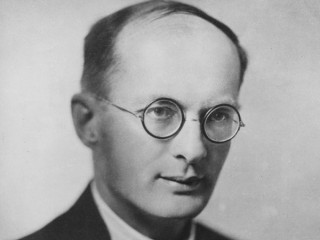
Kaspar Bronislaw Malinowski biography
Date of birth : 1884-04-07
Date of death : 1942-05-16
Birthplace : Cracow
Nationality : Austrian
Category : Science and Technology
Last modified : 2011-10-10
Credited as : Father of Social Anthropology, Doctoral degree in physics,
The Austrian-born British social anthropologist Kaspar Bronislaw Malinowski (1884-1942) founded the functional school of anthropology. He stressed the pragmatic functioning of human institutions within a culture.
Bronislaw Malinowski was born on April 7, 1884, in Cracow, then in a part of Poland belonging to Austria. His father was a professor of Slavic languages. Bronislaw attended Cracow's King John Sobieski public school and the Jagellonian University, earning in 1908 the doctoral degree in physics and mathematics. While ill he read Sir James Frazer's The Golden Bough, which turned his interest to anthropology. Brief study at the University of Leipzig under Karl BÃcher and Wilhelm Wundt was followed in 1910 by further study in anthropology at the London School of Economics under C. G. Seligman and Edward Westermarck. He first lectured at the University of London's School of Economics in 1913. There he earned the doctor of science degree in 1916, was appointed reader in anthropology in 1924, and held the university's first chair in anthropology in 1927. He also lectured in Geneva, Vienna, Rome, and Oslo. He married Elsie Rosaline Masson in 1919. She died in 1935, leaving three daughters. He later married Anna Valetta Hayman-Joyce.
During visits to the United States, Malinowski studied the Pueblo Indians in 1926 and lectured at Cornell University in 1933; at Harvard University's tercentenary in 1936 he received an honorary doctoral degree. In 1939, when World War II erupted, he was teaching at Yale University and was chairman of the board of exiled members of the Polish Academy of Arts and Sciences. Malinowski died in New Haven, Conn., on May 14, 1942.
As a commanding figure in modern anthropology, Malinowski was famous because of his skillful lectures and
influential writings. His command of languages included Polish, Russian, German, French, English, Italian, and Spanish, as well as the languages of tribal groups he studied. He attracted students with various career goals, particularly colonial civil servants, and trained and directed the field research of a generation of social anthropologists. He encouraged beginning students but was often intentionally devastatingly critical as they became more advanced. The most able responded with greater effort and often with self-assertive anger mixed with admiration and devotion.
Malinowski emphasized the function of such cultural characteristics as custom, ritual, religion, sexual taboos, institutions, ceremonies, and beliefs. In focusing on these and other cultural factors as functional parts of a nicely balanced system, he founded the so-called functional school of social anthropology and helped transform speculative anthropology into a modern science of man. A New York Times obituary called him an "integrator of ten thousand cultural characteristics" to whom students flocked, "enthralled by his command of his material."
Studies of Malinowski include Max Gluckman, An Analysis of the Sociological Theories of Bronislaw Malinowski (1949), and Raymond Firth, ed., Man and Culture: An Evaluation of the Work of Bronislaw Malinowski (1957). His career is recounted in Abram Kardiner and Edward Preble, They Studied Man (1961). A detailed critique of his theories is in Marvin Harris, The Rise of Anthropological Theory: A History of Theories of Culture (1968).
Malinowski, Bronislaw, A diary in the strict sense of the term, Stanford, Calif.: Stanford University Press, 1989.
Malinowski, Bronislaw, Malinowski among the Magi: The natives of Mailu, London; New York: Routledge, 1988.
Malinowski, Bronislaw, The story of a marriage: the letters of Bronislaw Malinowski and Elsie Masson, London; New York: Routledge, 1995.
Malinowski between two worlds: the Polish roots of an anthropological tradition, Cambridge; New York: Cambridge University Press, 1988. □
















